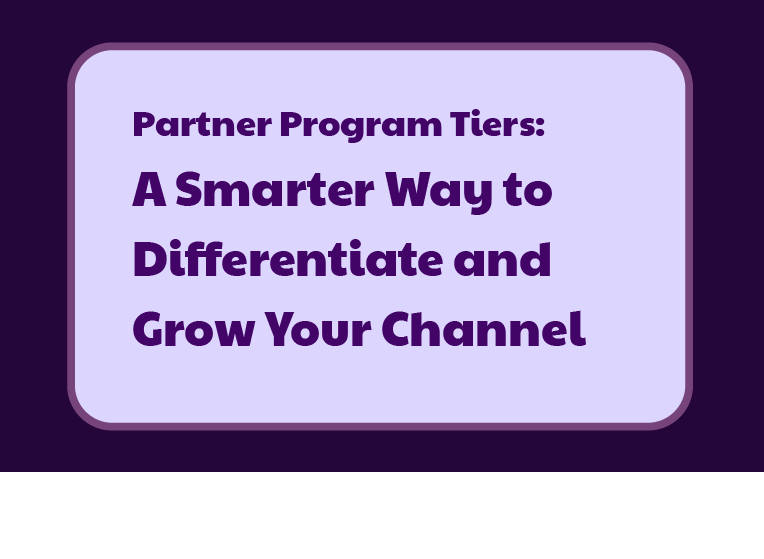3 Ways Self-Serve Onboarding will Help your Channel Partners
Self-serve onboarding and certification will help support and manage across channels from the first day with ease - it's the best way to ensure long-lasting, profitable relationships with partners.

Table of Contents 📋
Table of Contents 📋
Companies that rely on a partner channel to extend their reach to a broader audience of customers often find it challenging to use traditional communication vehicles for all of the activities related to managing a reseller, dealer or service provider partner channel, including:
- Contract management
- Onboarding, training, and certification
- Communications, marketing collateral fulfillment and co-marketing campaign content distribution
- Setting up processes and requirements for sales forecasting, support best practices and requests for product enhancements
The period of time surrounding the signing of contract agreements is crucial to set the stage for a mutually beneficial and productive relationship with manufacturers, distributors, publishers and each partner in its channel ecosystem.
Fully enabled channel partners have an immediately amplifying impact on your company’s revenue.
A report by the Aberdeen group states,
Regardless of the size of your partner channel management team, a self-service partner community creates efficiencies, instills partner confidence and empowers partners to be more self-sufficient.
Below, we've put together 3 key ways partner-centric companies can leverage a partner community portal to effectively welcome and train new partners for future success.

Managing Vital Documents
When you’re welcoming a new partner into your channel, there are several documents you’ll want to share with them and store for future reference. Beyond the initial agreement outlining the terms of the partner relationship, there are other documents which need to be made available in their most recent version:
- Software/service licensing agreements
- Support documents
- Deal/Opportunity registration forms (once approved)
- Master Service Agreements in cases of joint project delivery
- Non-Disclosure Agreements
- Certificates of completion of training courses
- Installation manuals. Engineering blueprints and/or technical guides
- Organization charts and rules of engagement for sales, support, and purchasing
- Escrow agreements for software
- Price sheets
Easily accessing the latest version of these documents is important and with a mobile-friendly document viewer allows partners to review a document before downloading it. As is the ability to apply digital signatures with apps like Adobe Sign. Security roles enable complete access control to documents as well as other content and data.
Providing a platform for partners to independently get up to speed on your products and services, and offering incentives for your partners to get trained up is key to Partner Relationship Management (PRM) success.

When you create consistent, comprehensive and on-demand partner onboarding and training, it gives all of your partners an equal opportunity to be competitive and effectively represent your product. A self-serve partner portal supports access to many types of onboarding content, including:
- Videos
- Training courses
- Quizzes and assessments
- Course completion certificates
- Messaging functions for communication with course instructors or learning content creators
Providing your partners with access to your catalog of courses, on their preferred devices and on- demand is a great way to increase partner engagement. Successful partner programs provide incentives for completing training courses with point systems or badges which can accumulate to higher commission tiers, access to Market Development Funding, or recognition with certification tiers.
Integrating your PRM portal with a CRM application such as Salesforce, SAP, MS Dynamics, HubSpot, etc. allows you to share information with partners, track courses your partners have completed, key employees on their teams and address any issues which might be standing in the way of developing a strong indirect sales channel.

Partner Sales Empowerment
Consider this: A new partner needs more than product knowledge to successfully develop a sales strategy. Channel Managers need to stay on top of the leads and opportunities in which Partners are engaged in order to be an effective resource. Communication and collaboration on deals and opportunities are vital to support a new partner relationship.
Time-consuming phone calls and endless emails trying to track the status of a deal or provide assistance with opportunities can be avoided. A platform promoting visibility into sales activity enables Channel Managers to empower even the newest partners with real-time support.
Integrating the sales portal with your CRM allows your company to react to any bottlenecks in the ramp-up process, provide appropriate and timely feedback and improve your channel relationships.
Onboard, certify, support and manage across channels from the first day with ease - it is possible and the best way to ensure long-lasting and profitable relationships with your partners.
To book a demonstration to find out how a Magentrix PRM community could improve your partner onboarding and certification process, please contact our solution advisors.



